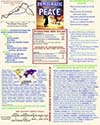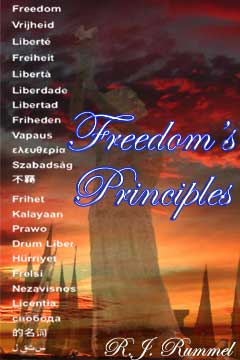Source of carton
On July 11, 2009, the liberal Iranian website www.khandaniha.eu published a fatwa by Ayatollah Hossein Ali Montazeri, the most senior contemporary Shi'ite cleric. The fatwa was issued in response to a series of queries submitted to him by Iranian intellectual and cleric Mohsen Kadivar, pertaining to the legitimacy of the current Iranian government.
Source of fatwa The following are excerpts from the fatwa:(1)
Query: "What is the ruling regarding holders of government positions, whom shari'a law requires to act justly, honestly, and wisely... if they [do not fulfill] these requirements to any degree, but behave in a manner diametrically opposed to them?"
Reply: "If none of the requirements mentioned in this query are met, this automatically, and without any need for impeachment, brings about the de facto collapse of the velayat [the 'jurisprudent,' meaning Iranian Supreme Leader Ali Khamenei] and of the government that is in charge of administering social affairs [i.e. the government of Iranian President Mahmoud Ahmadinejad] – and renders null and void all decrees issued by those who hold government positions...
"In the event of a breach of any article of the contract between the two sides – namely [the contract] between the position holder and the people, who appointed him – the people may remove the position holder from his post."
Query: "What is the religious duty of the people if these position holders insist on acting in ways that contravene the religious directive of 'commanding good and prohibiting evil?'"
Reply: "As I said, both religious law and common sense [dictate that] position holders who have lost the right to administer social affairs automatically lose their posts, and their rule is no longer legitimate in any way. If they remain in their position by means of force, fraud, or forgery, then the people must express their opinion regarding the illegitimacy and unpopularity [of these position holders], and remove them from their posts in the least harmful way...
"Obviously, this is a duty incumbent upon all [and not only upon specific individuals]... and none may evade it under any pretext. The elite [i.e. the clerics] have a special obligation [to carry out this task], since they are knowledgeable in religious and civil law, and have greater ability than [the rest of the people]. Their statements have greater influence and carry greater force; therefore, they bear a greater responsibility. They must present [the people]... with an alternative [option], while [preserving the people's] unity and ideological harmony, and establishing parties as well as public and private organizations."
Query: "Do the great sins listed below, and the [position holders'] insistence on committing them, contravene the 'principle of justice' and lead to the implementation of the 'principle of tyranny?'
"1. Ordering innocent people killed and causing their death;
"2. Ordering and being involved in an armed [campaign] of threats and intimidation, and of beating and wounding innocent people in the streets;
"3. The de facto prevention of senior ayatollahs from fulfilling their religious duty of 'commanding good and prohibiting evil,' by obstructing all reasonable and legal means of non-violent protest;
"4. Denying freedom and imprisoning anyone who acts or advises [others] to act [according to the religious precept of] 'commanding good and prohibiting evil,' and extorting false confessions through pressure;
"5. Censoring media and information…;
"6. Smearing all those who protested [following the elections]... and all those who opposed the position holders, [by calling them] 'mercenaries' and 'spies of foreign [forces]';
"7. [Spreading] lies, false testimony, and false reports on all matters concerning the rights of the public;
"8. Betraying the people's trust;
"9. [Practicing] tyranny, ignoring [the people's] opinion, and disregarding the clerics' counsel and warnings;
"10. Preventing rightful owners [i.e. the people] from taking possession of the common property – [that is,] the nation's destiny;
"11. Insulting Islam and demeaning religion by presenting Islam and the Shi'ia to the world as crude, illogical, aggressive, superstitious, and despotic."
Reply: "Committing the above sins, or insisting on [committing] some of them, is incontrovertible and clear proof of the absence of justice, and is [in fact] an essential characteristic of oppression and injustice… It is obvious that any sin committed in the name of religion, justice, or the law – and especially the [sins] mentioned above – [makes] evil increase, and also causes further distancing from the religion. [These offenses entail] the most severe punishment, in this world and in the world to come, since in addition to the evil sins of fraud and of distancing [people] from the religion, they also corrupt [the very principles of] justice and law.
"In cases where according to the position holders, the acts were just and within the law, while the majority of the people maintains that they were illegal... and [that they constituted] offenses against [the people's] rights, then there is a need to act according to a ruling by honest and impartial arbitrators agreed upon by both sides."
Query: "Does clinging to principles such as 'the supreme duty of preserving the regime' justify aggression against the legitimate rights of the people and the trampling of most of the moral directives and religious commandments, such as [the commandment to be] truthful and trustworthy? Can implementing justice be suspended... under the pretext of preserving the regime's interests? What is the believers' religious duty if some position holders confuse the regime's interests with their own, and insist on enforcing their mistake?"
Reply: "...Clearly, it is not possible to preserve or strengthen the Islamic regime via oppression – which contravenes [the precepts of] Islam. This is because the need for a regime stems [in the first place from the need] to dispense justice and to protect [the people's] rights – that is, to implement the directives of Islam. So how can injustice, oppression and [other] contraventions of Islam possibly [serve to] strengthen or preserve a just Islamic regime?
"A regime that uses clubs, oppression, aggression against [the people's] rights, injustice, rigged elections, murder, arrests, and medieval or Stalin-era torture, [a regime that] gags and censors the press, obstructs the media, imprisons intellectuals and elected leaders on false allegations or forced confessions... – [such a regime] is despicable and has no religious merit...
"The proud people of Iran know very well exactly how authentic [the detainees'] confessions are; they are like [confessions obtained] by fascist and communist regimes. The nation knows that the false confessions and televised interviews were obtained from its imprisoned sons with threats and torture, and that their aim is to cover up the oppression and injustice, and to [present a] distorted [image] of the people's peaceful and legal protest...
"The state belongs to the people. It is neither my property nor yours... When the Shah heard the voice of the people's revolution, it was already too late [for him]. It is to be hoped that the people in charge [today] will not let [themselves] reach the same situation, but will become more amenable to the nation's demands, and as soon as possible...
Query: "What are the religious indications for an 'oppressive rule [velayat, meaning Khamenei],' and what are the duties of the clerics and the believers [when faced with such a regime]?"
Reply: "...Society notices justice and injustice on the part of the rulers; the signs are clear to all... [Therefore,] it the responsibility of everyone to act in the face of injustice and in the face of the trampling of the people's rights – and to inform others of this responsibility. Furthermore, [both clerics and believers] must present ways to act in these circumstances... This is because it is inconceivable that someone would claim to be pursuing justice, but would in fact do nothing to implement it, under the pretext of fear or powerlessness..."

























 Mike Ramirez in the NY Post
Mike Ramirez in the NY Post
















